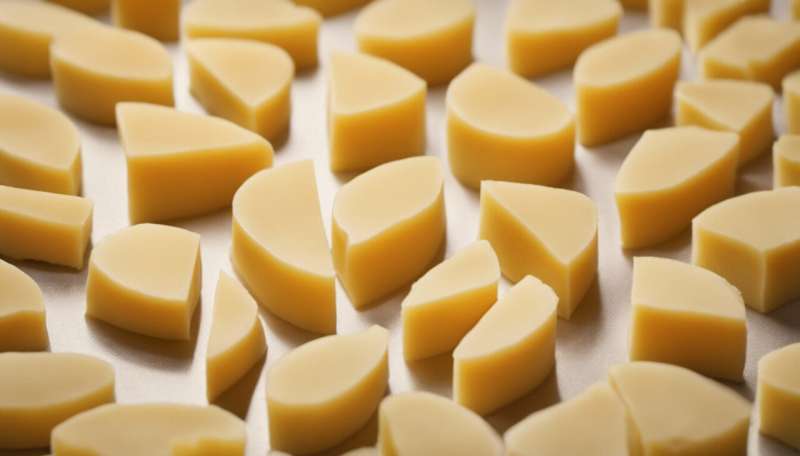Making low-fat cheese taste better

In an effort to promote better public health, recent European law requires producers to limit fat content, particularly in cheese and cheese-based products.
Producers have responded - today there are more reduced- and lower-fat cheese varieties in your supermarket than ever before. However, many people simply don't like low-fat cheeses, because of their poor flavour, texture and melting qualities.
Researchers at the EU project CHEESECOAT ('Novel processing technology for manufacturing low- fat mozzarella-type cheese with superior performance in ready meals') are seeking to help European cheese makers produce low-fat cheeses that will be more appealing to health-conscious consumers.
They are working to develop a new method for producing low-fat mozzarella with similar melting properties, texture and taste as full-fat varieties.
To improve texture and flavour, project researchers, led by SP Technical Research Institute of Sweden, will employ newly formulated starter cultures. These are microbiological cultures that perform fermentation. The researchers will test the most efficient processing conditions of temperature, pH, milk fat and other key factors in cheese production.
The scientists are also working on an innovative oil-coating process, which will improve cheese melting qualities. This includes developing a new device for coating low-fat cheese after it has been shredded.
CHEESECOAT partners say they hope their novel technology will allow cheese producers to deliver tasty and - at the same time - healthy products to customers. The three percent-fat mozzarella will have a similar texture, look and taste to currently available full-fat cheese of the same type.
The 'new' cheese will be particularly well suited for use in the industrial food sector, primarily for chilled and frozen pizzas, ready-made meals, fast food, sandwiches and salads, the scientists say.
The project could provide European cheese makers with an innovative technology that will give them a competitive edge in the global dairy industry.
The project consortium includes a mix of large and small businesses. The researchers plan to complete their work in November 2014. The EU is providing CHEESECOAT with EUR 1.9 million in funding.
More information:
Provided by CORDIS

















